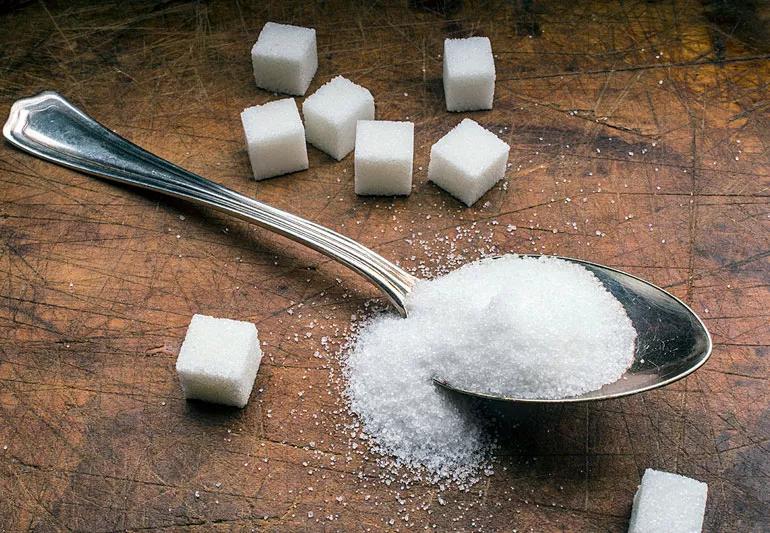This low-carb diet limits all sugar calories to 100 a day

Image content: This image is available to view online.
View image online (https://assets.clevelandclinic.org/transform/b37ea205-d3cf-4541-b458-9eade0f229e5/sugarDiet100-681197933-770x533-1_jpg)
tablespoon of sugar and sugar cubes
By: Laura Jeffers, MEd, RD, LD
Advertisement
Cleveland Clinic is a non-profit academic medical center. Advertising on our site helps support our mission. We do not endorse non-Cleveland Clinic products or services. Policy
Imagine a diet where fruit and whole grains can be the bad guys.
It sounds strange, but that’s what “The 100” diet promotes by restricting consumption of sugar calories to 100 per day for quick weight loss.
You can get the general idea from the title of Jorge Cruise’s book, The 100: Count Only Sugar Calories and Lose Up to 18 Lbs. in Two Weeks.
This is basically a super low-carb diet. You may very well lose that weight, but it will be difficult to keep the weight off long-term. If a diet is filled with unsustainable restrictions, weight that comes off fast will be fast coming back on.
The 100 diet isn’t referring to just refined or added sugar — it means all sugar that comes from carbohydrates, including those that occur naturally in fruit, vegetables, legumes and whole grains. Fiber content and protein aren’t taken into account. The number of total carbohydrate grams is what counts in coming up with the number of sugar calories.
So, in The 100 diet, sugar calories in a food are calculated this way: Total carbohydrate grams X 4 = sugar calories.
Here are a few examples of total carbohydrate grams in some healthy foods, translated into sugar calories:
Advertisement
As you can see, it won’t take much to put you over the daily limit of sugar calories!
Most Americans overeat carbohydrates, so watching your carbs is definitely a good idea. But eating a balanced diet is more important, and so is portion control. You can manage weight by eating just about anything — just not overeating.
The 100 diet isn’t dangerous, but it doesn’t supply all the elements you need for a healthy diet. Losing fat so quickly, too, affects electrolytes and your body’s balance. That’s why you should check with your doctor before starting a super low-carb diet like this.
Carbs, healthy fats and protein, and the fiber, vitamins and minerals that you get from lots of fruits and vegetables are all part of a good diet. And so is naturally occurring sugar!
So rather than going on a crash diet, I advise you to take the weight off safely and gradually — 1 or 2 pounds a week. And you’ll have a much better chance of keeping it off.
Advertisement

Sign up for our Health Essentials emails for expert guidance on nutrition, fitness, sleep, skin care and more.
Learn more about our editorial process.
Advertisement
Alternating between periods of eating and fasting may benefit your health
This plant-based eating plan focuses on lowering cholesterol, making it a great companion to the Mediterranean diet
Choose foods that are low in fiber and easy to chew and swallow
The flexible eating plan aims to boost your brain health by focusing on plant-based foods and limiting saturated fat
Designed to lower your blood pressure, this eating plan focuses on heart-healthy foods like whole grains, fruits and vegetables
Pescatarians don’t eat poultry, game or red meat, but they do eat fish and seafood, dairy and eggs
This eating style has many health benefits, including weight loss, an improved microbiome, and increased nutrient and mineral consumption
Research shows promising results from options like the DASH diet and Mediterranean diet
Prioritize your health by managing stress, strengthening your social connections and getting quality sleep
Bolsters, blankets, pillows and blocks can offer extra support, stability and comfort
Allergies, postnasal drip, asthma or reflux could be to blame for a cough that won’t quit